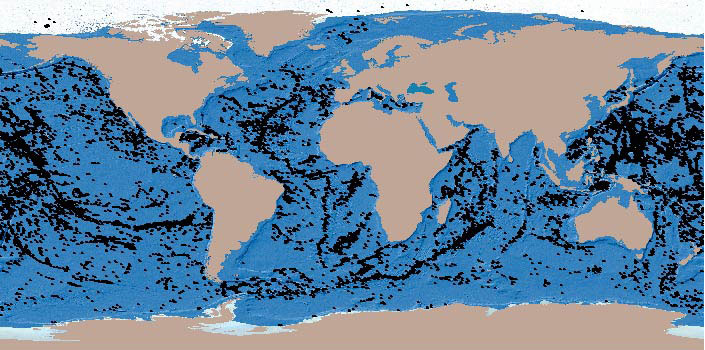2005

The coastal ecosystem of the Indian Ocean includes environments such as mangroves, seagrass beds and coral reefs. These habitats are some of the most productive and diverse environments on the planet. They form an essential link in the food webs that leads to fish and other seafood providing food security to the local human population. In addition coral reefs and mangrove forests protect the coastal areas against erosion. Unfortunately, due to a number of human activities, these valuable environments are now being degraded at an alarming rate.
The issue of shoreline changes has increasingly become a major social, economic and environmental concern to a large number of countries in the western Indian Ocean (WIO) region, where it poses a serious problem to the environment and human settlements.
The countries of the Western Indian Ocean (WIO) region share a common but varying dependence on the coastal resources including fisheries resources. Currently the coastal zone of the mainland states is home to over 30 million people and about 7.7 million more live on the Islands of Seychelles, Mauritius, Madagascar, Comoros and Réunion (Linden and Lundin, 1997). Coastal resources in the Eastern African region have supported the livelihoods of generations of coastal dwellers and have contributed to the economic development of most countries in the region.
The following study was undertaken with the objective of assessing the development potential of the fisheries sector in Puntland, in terms of growth potential and actions/interventions required for further development. The assessment is part of UNDP’s efforts to improve livelihoods and promote economic diversification that form part of the UNDP Strategy for Poverty Reduction and Economic Recovery (PRER).
In this report a review of national policies and legislation addressing issues of the alteration and destruction of critical coastal and marine habitats, and the institutional arrangements towards alleviating the same is presented. The land-based social and economic activities impacting on the habitats and the extent to which the latter are affected is assessed. Emphasis has been placed on the link between the impacts and tourism or tourism catalysed activities.
The Indian Ocean Tsunami of 26 December 2004 affected part of Somalia, with most of the damage experienced in the north-east along a 650 km coastline stretching from Xafuun in the Bari region, to Garacad in the Mudug region. About 44,000 people are believed to have been affected by the tsunami.